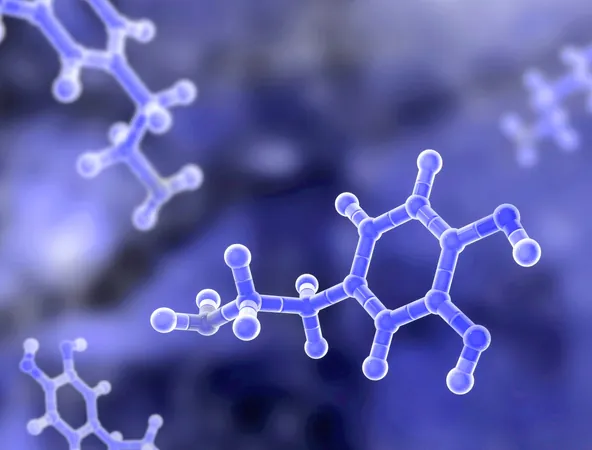
Shocking Link Between Cannabis Use and Psychosis Unveiled!
2025-04-10
Author: Chun
Cannabis Legalization and Rising Concerns
Since Canada legalized cannabis six years ago, researchers are uncovering critical long-term health implications. Among the most concerning findings is the alarming connection between frequent cannabis use and psychosis, shaped by significant changes in brain chemistry.
Breakthrough Study Reveals Dopamine Changes
A groundbreaking study from Canadian scientists has unveiled biological evidence closely linking cannabis use to alterations in dopamine levels, resembling those found in early signs of psychosis. The research, which appeared in JAMA Psychiatry, utilized cutting-edge neuromelanin-sensitive MRI technology to analyze brain scans.
Understanding the Dopamine Dilemma
Dopamine, a key neurotransmitter, plays a pivotal role in mood, motivation, and learning—yet, it also significantly relates to psychotic disorders. This study marks a critical advancement in understanding how cannabis influences dopamine activity, particularly in brain regions associated with hallucinations and delusions.
Shocking Scans Show Elevated Dopamine Activity
The research involved 61 participants aged 18 to 35 from London, Ontario, highlighting those with cannabis use disorder (CUD) or early psychosis. Astonishingly, the study discovered that CUD participants exhibited higher levels of neuromelanin—indicating heightened dopamine activity—compared to healthy individuals. This dopamine elevation was consistent, persisting for over a year after initial scans.
Cannabis Use: A Dose Dependent Danger
The correlation between cannabis use and dopamine changes turned out to be dose-dependent. Individuals with more severe symptoms of CUD exhibited pronounced dopamine signals, establishing a clear relationship between the frequency and intensity of cannabis consumption and its psychiatric repercussions.
Rising Cases of Cannabis-Induced Psychosis
Since the legalization of cannabis, Canadian emergency departments have recorded a worrying rise in cannabis-induced psychosis cases. Experts are noting a disturbing trend: brief episodes of psychosis are evolving into severe psychological disturbances among adolescents, prompting urgent calls for intervention.
Persisting Changes and Long-Term Effects
Even more concerning is the revelation that changes in dopamine activity did not revert back to normal, even after a year of abstinence from cannabis. This finding raises crucial questions about the long-term mental health implications for users.
A New Understanding of Psychosis Risks
This study is not intended to demonize cannabis use but to provide a clearer understanding of its effects on the brain. With cannabis gaining popularity, especially among the youth, recognizing its potential risks linked to psychosis is imperative for informed decision-making.
Conclusion: A Call for Awareness and Caution
With cannabis use disorder increasingly linked to measurable brain changes, stakeholders—including clinicians, families, and users—must acknowledge this urgent connection to better navigate the mental health landscape and promote safer outcomes. As the conversation surrounding cannabis continues to evolve, these findings could prove pivotal in shaping public health strategies.



 Brasil (PT)
Brasil (PT)
 Canada (EN)
Canada (EN)
 Chile (ES)
Chile (ES)
 Česko (CS)
Česko (CS)
 대한민국 (KO)
대한민국 (KO)
 España (ES)
España (ES)
 France (FR)
France (FR)
 Hong Kong (EN)
Hong Kong (EN)
 Italia (IT)
Italia (IT)
 日本 (JA)
日本 (JA)
 Magyarország (HU)
Magyarország (HU)
 Norge (NO)
Norge (NO)
 Polska (PL)
Polska (PL)
 Schweiz (DE)
Schweiz (DE)
 Singapore (EN)
Singapore (EN)
 Sverige (SV)
Sverige (SV)
 Suomi (FI)
Suomi (FI)
 Türkiye (TR)
Türkiye (TR)
 الإمارات العربية المتحدة (AR)
الإمارات العربية المتحدة (AR)